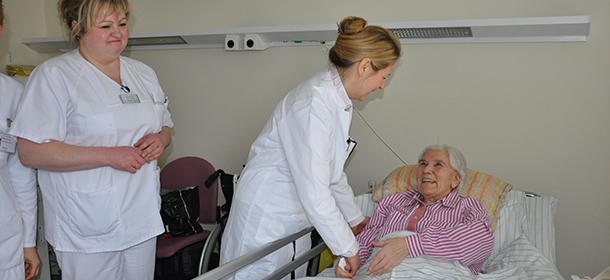"Patient as Commodity"
The looming gaps in the German healthcare system will be painfully evident to anyone who requires a stay in the hospital. Ever-growing numbers of patients suffer from the inadequate care administered by reduced personnel. Meanwhile, the elimination of 50,000 healthcare jobs have led to a situation in which beds remain empty because proper care for patients cannot be insured. A problem for hospitals, which are now in worse shape than ever due to mandatory spending cuts. The majority are in the red, and worse yet, 15% of all clinics in Germany face the immediate threat of bankruptcy. The pressure grows steadily, but what is left to cut? Personnel are already working far beyond maximum capacity. Burnout, early retirement, and symptoms of exhaustion and stress have long since become common.
"The enormous time pressure, excessive overtime, it simply can't go on. Parents despair when therapies for their children must be delayed due to personnel shortages. For us as well, things have become unendurable," explains a nurse in a pediatric ward.
In order to provide viewers with an accurate picture of the situation at German hospitals, we accompany nurses at the Charité on their daily rounds. We also speak with representatives from interest groups representing healthcare workers and the medical profession, as well as from the political sphere. We want to know how the system works – a system that allows human beings to become commodities as a consequence of flat rate payment plans and target agreements. Why have politicians failed to find a better way? Where are we headed when patient treatment is expected to be profitable above all else? Overstrained care personnel and doctors who have reached their limits. The result: dissatisfied patients. What is the prognosis for German hospitals? What kind of future will we find ourselves adapting to?



